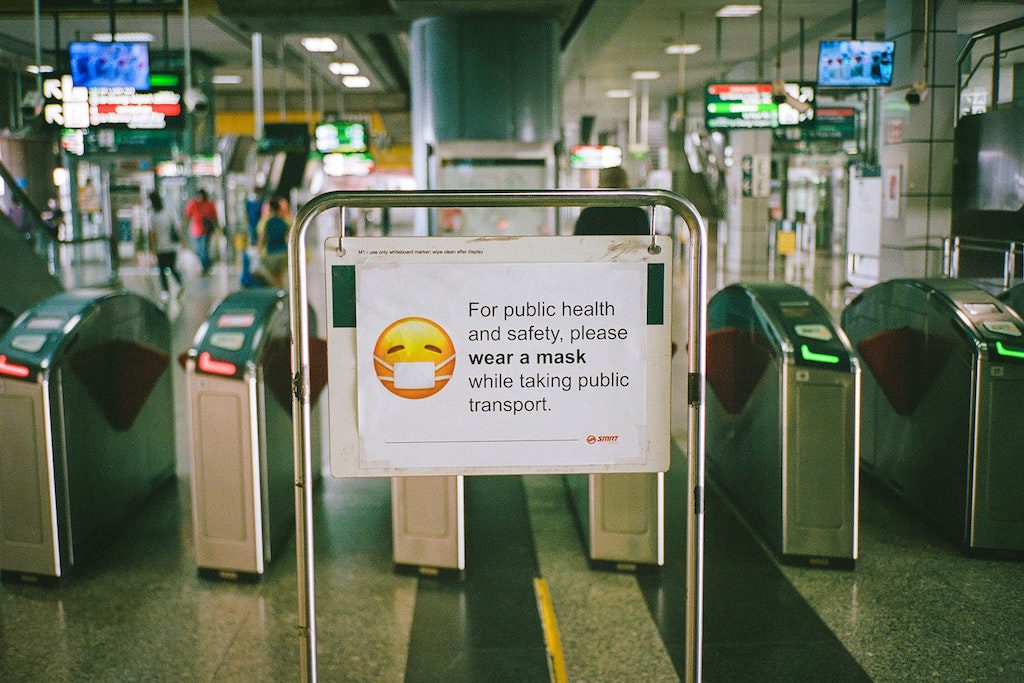Skift Take
Bad news for 2021 optimists. Leading science writer and pandemic expert Laurie Garrett says while we're waiting for a vaccine, wear a mask. It might even be more effective.
Back in the treacherous days of spring 2020, there was wishful talk of a return to travelling normalcy by the fourth quarter of this year. As the autumn begins, many prognosticators are holding out hope that the summer 2021 season will look like normal.
At the kick-off of Skift Global Forum on Monday, Pulitzer prize-winning science writer Laurie Garrett had some sobering news for the travel industry: She foresees the pandemic as having a 36-month event horizon.
This, by the way, was Garrett imagining a best case scenario. “That would mean we had a vaccine that was better than 90 percent effective, safe, could be taken in a single dose, could be administered to 7 billion people worldwide with relative ease. We don’t have that,” Garrett told Skift CEO Rafat Ali. “None of the leading contending vaccine candidates that are in the pipelines right now … promise to be better than 50 percent effective.”
Garrett — who also formerly served as senior fellow for global health at the Council on Foreign Relations — said that many of the favored interventions or touted safety precautions are also not as effective as they seem. Temperature checks, for example, don’t have the efficacy they had during SARS because people tend to be most contagious with Covid-19 before they get a fever — if they show symptoms at all.
Meanwhile testing an individual right before they board a plane, or a cruise, or enter a conference wouldn’t necessarily pick up infections acquired in the hours before in the airport, the hotel that morning, or even a day or two before the flight.
“You don’t have sufficient either nucleic acid from the virus, you certainly aren’t making antibodies yet, and your body may not even be generating the proteins yet,” Garrett said, referring to the three different test types. “So it’s like a false sense of security that’s being put up, but you’re not really measuring anything that makes sense.”
So what does Garrett say the travel industry should focus on? The first one, you guessed it, is masks. “Studies show if worn properly this,” putting on her mask “is 70 to 80 percent protective. Whereas if a vaccine is 50 percent protective, [that means] this [mask is] superior. At the moment this is the closest thing we’ve got to a vaccine.”
(And by the way, she reminded, it needs to cover your nose.)
She also noted the importance of ventilation, mentioning a study in China which showed Covid was spread widely on a bus with the windows closed and the AC on, and not on one with the windows open.
“If you don’t have ventilated air, fresh flushing of air through the space routinely and constantly, then that recirculation of the same particles … those will just keep recirculating in the air over and over and eventually if you’re not wearing a mask one of them is coming right in your breathing space.”
She also noted the effect of alcohol in otherwise safe settings, like a beach or park. “It’s the mixing of the alcohol, and the schmoozing, and the hanging out, cutting loose feeling loosey goosey — that’s the problem.”
Garrett also had harsh words for the cruise industry, which Monday submitted its recommendations to the CDC for how to resume sailing. She noted that cruise ships are distinctly dangerous compared to other settings, and had demonstrated “quite explosive” spread early on in the pandemic.
“I think if the cruise industry keeps trying to push the envelope and find reason to come back on board literally in this pandemic they will be doing a disservice to the whole world,” Garrett said. “As painful as that is for that industry, I don’t see a safe way to put people in a moving containment unit, particularly if they’re going places where it’s uncomfortable to leave windows open.”
As for flying? “Airlines spread disease, meaning individuals get infected, they get on a plane, they go to another place and now they’re passing infection to others.” In other words, airlines served as a conduit, but whether or not they are actually promoting the spread of the virus within the aircraft cabin? “This is a much more controversial issue,” Garrett noted, citing a CDC report which said as many as 11,000 people could’ve been exposed on airplanes, but it’s a difficult number to confirm.
One audience member asked if Garrett would take a vaccine if one was ready in 2020. She says that no matter what the White House says, all signs point to a vaccine not being ready until 2021.
The Daily Newsletter
Our daily coverage of the global travel industry. Written by editors and analysts from across Skift’s brands.
Have a confidential tip for Skift? Get in touch
Tags: coronavirus, sgf2020, skift global forum
Photo credit: Mask up for the long haul. Shawn Ang / Unsplash

